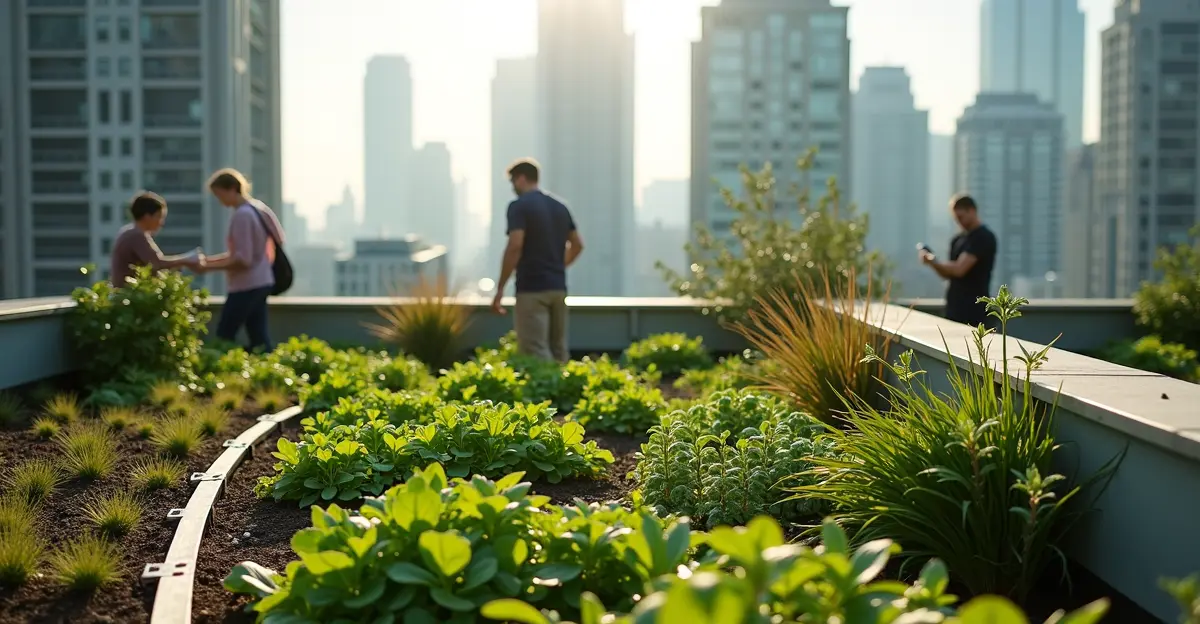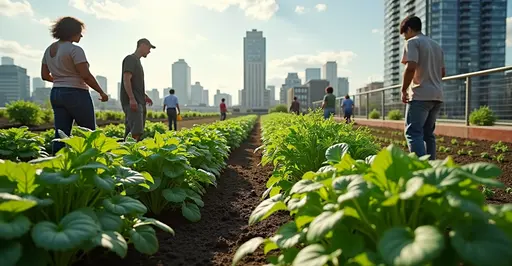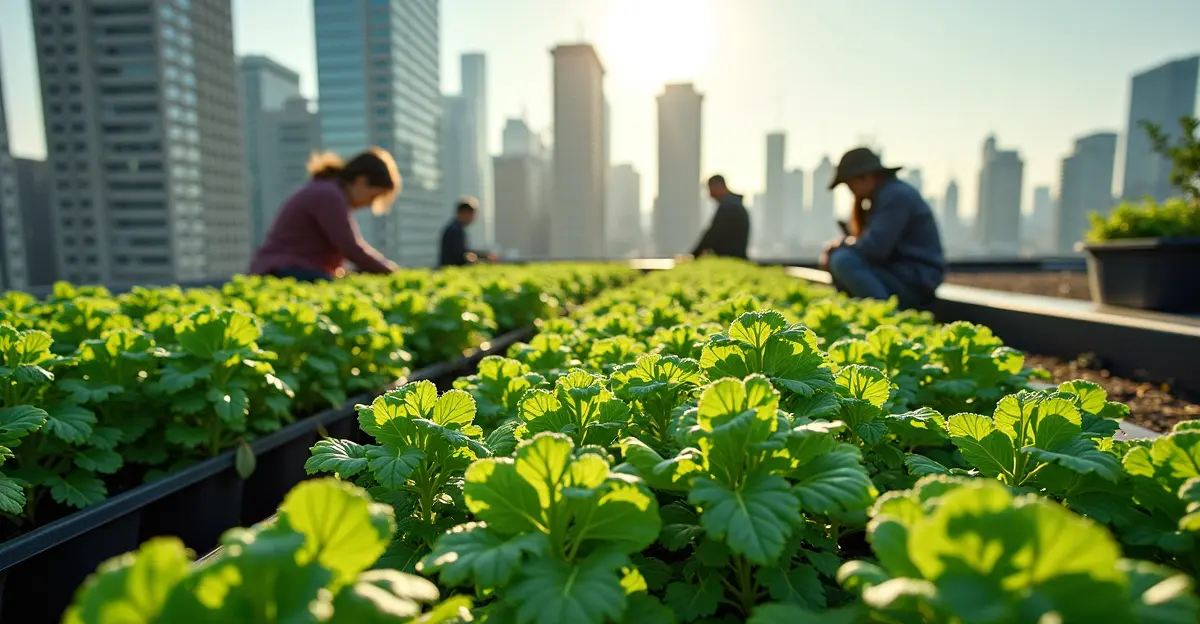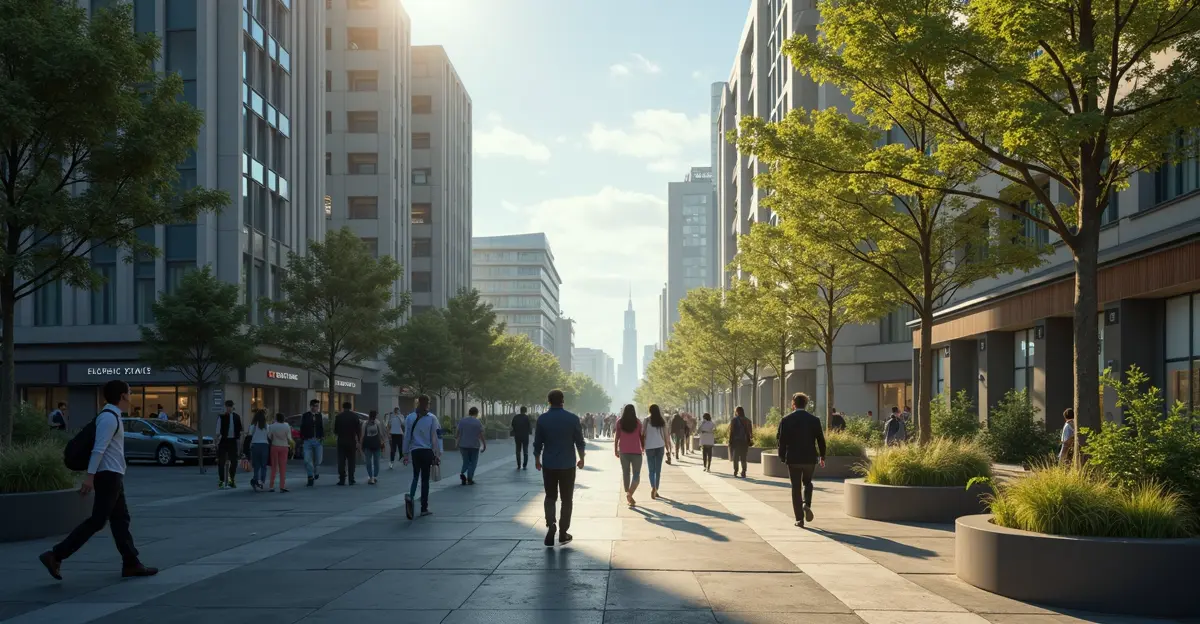Rooftop gardens are revolutionizing urban living by providing sustainable food production, environmental benefits, community building, and improved mental health in cities worldwide.

The Green Revolution Above Our Cities
Across urban landscapes worldwide, a quiet revolution is taking place—one that's literally growing above our heads. Rooftop gardens are transforming city living, offering innovative solutions to food security, environmental challenges, and community wellbeing.
From Concrete Jungles to Green Havens
What began as small-scale initiatives has blossomed into a global movement. Cities from New York to Singapore, London to Tokyo, are embracing the potential of their unused rooftop spaces. These elevated gardens are not just about growing food—they're reshaping how urban dwellers interact with their environment and each other.
"We're seeing a fundamental shift in how cities approach sustainability," says Dr. Maria Rodriguez, urban agriculture specialist at the Global Cities Institute. "Rooftop gardens represent a multi-faceted solution that addresses food production, climate resilience, and social cohesion simultaneously."
Environmental Benefits Beyond Food Production
The advantages of rooftop gardening extend far beyond fresh produce. These green spaces act as natural insulators, reducing energy consumption for heating and cooling by up to 30%. They absorb rainwater, mitigating urban flooding, and help combat the urban heat island effect that plagues many metropolitan areas.
Research shows that a single rooftop garden can absorb approximately 15-20% of airborne pollutants in its immediate vicinity, contributing to cleaner urban air. The vegetation also provides crucial habitats for pollinators and urban wildlife, supporting biodiversity in environments traditionally dominated by concrete and steel.
Community Building and Mental Health
Perhaps the most profound impact of rooftop gardens lies in their ability to foster community connections. In densely populated urban areas where green space is scarce, these elevated oases become gathering places that transcend social and economic boundaries.
"Our rooftop garden has become the heart of our building community," shares Sarah Chen, resident coordinator at a Brooklyn apartment complex. "People who never spoke before are now sharing gardening tips, recipes, and life stories. It's created a sense of belonging that was missing in our urban environment."
Studies consistently show that access to green spaces significantly improves mental health outcomes, reducing stress levels and promoting overall wellbeing. Rooftop gardens provide urban residents with much-needed connections to nature, even in the most built-up environments.
Economic Opportunities and Food Security
The economic implications are equally significant. Commercial rooftop farms are emerging as viable businesses, supplying restaurants and markets with hyper-local produce. This not only reduces food miles but creates employment opportunities in urban agriculture.
For many communities, rooftop gardens represent a step toward food sovereignty. In food desert neighborhoods where fresh produce is scarce and expensive, these gardens provide access to nutritious food while empowering residents to take control of their food supply.
Technological Innovations Driving Growth
Advancements in lightweight growing mediums, irrigation systems, and structural engineering have made rooftop gardening more accessible than ever. Hydroponic and aeroponic systems allow for soil-free cultivation, while smart monitoring technology enables remote management of these urban farms.
Many new buildings are now designed with rooftop agriculture in mind, incorporating structural supports and irrigation infrastructure from the outset. This forward-thinking approach signals a fundamental shift in how we conceptualize urban development.
Challenges and Future Outlook
Despite the growing popularity, rooftop gardening faces challenges including regulatory hurdles, initial investment costs, and technical expertise requirements. However, cities are increasingly recognizing the value of these spaces and implementing policies to support their development.
As climate change intensifies and urban populations continue to grow, rooftop gardens offer a scalable solution that transforms underutilized spaces into productive, beneficial environments. They represent not just a trend, but a necessary evolution in how we inhabit and sustain our cities.
The movement toward greener, more sustainable urban living is clearly ascending—quite literally—to new heights, proving that sometimes the best solutions are right above our heads.

 Nederlands
Nederlands English
English Français
Français Deutsch
Deutsch Español
Español Português
Português






